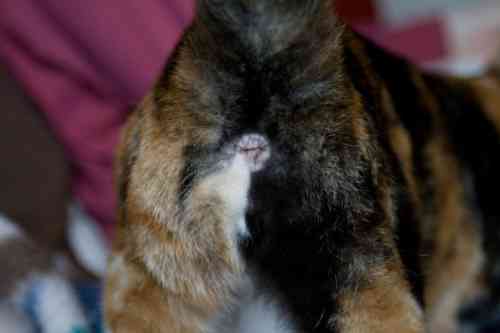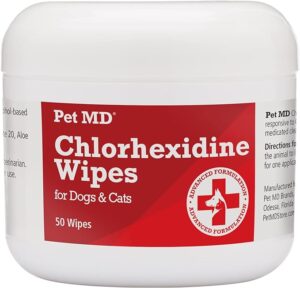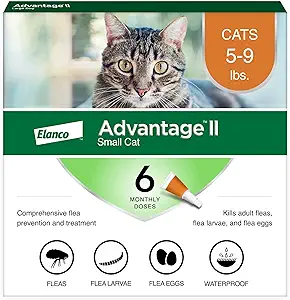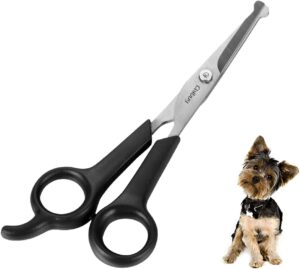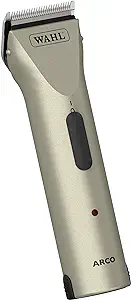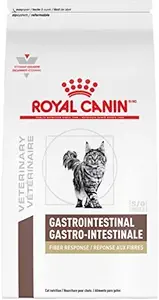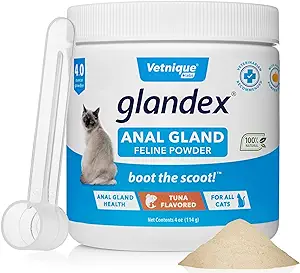Black spots on your cat’s anus
What are they?
In this article we discuss what the black spots on your cat’s anus could be. We will also tell you more about the diagnosis and its treatment. In most cases, it concerns overfull anal glands in your cat, which means that you will see two small black spots on the side of your cat’s anus. Hopefully you will find the answers to your questions about the black spots on your cat’s anus in this article. Enjoy reading!
What are those black spots on your cat’s anus?
In the vast majority of cases, the black spots on your cat’s anus are the openings of his anal glands. Your cat has two anal glands in the skin of his anus. He uses these glands to make anal gland fluid. He smears this substance over his stool every time he defecates. As a result, he gives his own specific smell to that poop. And by doing that he lets other cats know that he pooped there. And therefore that it is his territory.
The anal gland fluid can be very light colored, but also dark brown or even almost black. You can see this color shining through under his skin so that you see two black spots on your cat’s anus. They are at about 4 o’clock and 8 o’clock, if you were to compare his anus to an analog clock.
But in addition to the anal glands, it is also possible that your cat has small pieces of residual feces or grains of flea feces around its anus. But then you also see flea droppings on the rest of his body, especially around the base of the tail on his back. Is it not filth that you see, but black spots? It could also be normal pigment spots in the skin of the anus.
How do I know what is causing the black spots on my cat’s anus?
First of all, it is wise to clean your cat’s anus thoroughly with chlorhexidine wipes. These wipes with chlorhexidine ensure that your cat’s anus can be easily cleaned without causing additional damage to any wounds or damage. Clean the anus thoroughly with this. If you can brush away the black spots on your cat’s anus, then it was feces (for example diarrhea), filth or flea droppings. Or soil, that is also possible. In any case, it was dirty if you can rub it away. Can’t the black spots on your cat’s anus be removed? Then it is most likely the openings of his anal glands that you see. If his anus also sticks out too far, you can read more about that here.
Treating the black spots on your cat’s anus
But in addition to the anal glands, it is also possible that your cat has small pieces of residual feces or grains of flea feces around its anus. But then you also see flea droppings on the rest of his body, especially around the base of the tail on his back. Is it not dirty that you see, but black spots? It could also be normal pigment spots in the skin of the anus.
Cleaning and cutting or shaving hair
By cleaning your cat’s anus with the chlorhexidine whipes, you have already been able to see whether there was dirt or something else. It goes without saying that it is important that your cat’s anus is clean. Was it dirty and do you have a long-haired cat? Then you can cut the longer hair around your cat’s anus a little short so that dirt is easier for your cat to brush away itself.
Flea treatment
Also check carefully that your cat does not have fleas. Do you see all the little black “grains of sand” between your cat’s hair? Then that is probably not sand, but flea droppings. You can recognize the difference between the two by putting some of those grains on a white paper and wiping it with a wet finger. Grains of soil give a black-gray streak and flea droppings a rust-brown streak. If there is flea feces, you can use the following drops to get your cat flea-free again.
Treating anal glands
Do you think that it is your cat’s anal glands? Then you will see a small dot of 1 to 2 mm on both sides of the anus and you cannot remove it with the chlorhexidine wipes. In that case, it is important that you pay attention to whether your cat is suffering from his anal glands. You might then see that he tries to lick his anus clean more often than usual. Or he slides his buttocks on the floor because it itches him. Doesn’t it bother him? Then you don’t have to do anything about the black spots. They can’t hurt.
If the glands are overfilled, it is wise to empty your cat’s anal glands. Be sure to wear disposable gloves for this, because it is difficult to wash this stuff off your hands. You can empty the anal glands by holding a chlorhexidine wipe against your cat’s anus and then gently squeezing the sides of your cat’s anus from the side towards the center of the anus. So it’s like squeezing the 4 o’clock and 8 o’clock on a clock towards the middle of the clock. You then feel that “something” is oozing out of the anus.
Make sure you have been able to get some liquid out of both sides. If all goes well, you will see a dirty mess on the cloth. Your cat will briefly wash and lick its anus thoroughly, but after that you should no longer see any black spots and your cat should no longer have any problems with its anal glands.
Treating pigment spots
If pigment spots have developed on your cat’s anus, this may be because your cat has gotten older. Or maybe you just never noticed it before. In any case, the pigment spots on your cat’s anus do not cause any harm and therefore do not require treatment.
Preventing black spots on your cat’s anus
First of all, it is important that your cat can clean its own anus properly. This rids it of dirt and ensures that there is less chance of inflammation and infections of his anus. But if your cat has long hair, he may have some difficulty with this. Make sure that the hair around your cat’s anus is kept short using blunt scissors or an (easier) razor. The shaver below is super quiet and very easy to use.
Of course, it is also important to keep your cat flea-free by providing it with flea drops such as Advantage every month.
Do you want to avoid seeing black spots on your cat’s anus from his anal glands again? Then it is wise to give your cat food that contains more fiber so that he has to push a little harder and in this way he empties his anal glands more often. Or you can give him a scoop of Glandex in his food every day. This improves the quality of the anal fluid and allows the anal glands to empty themselves better.

